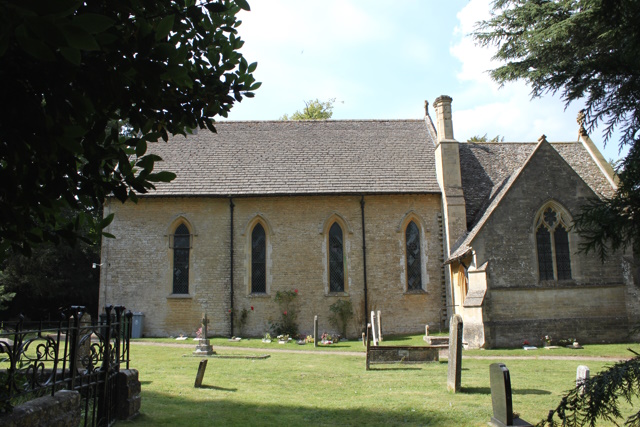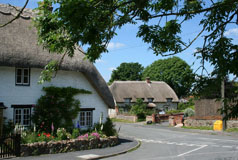
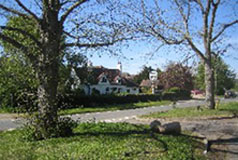
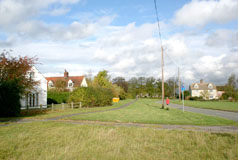
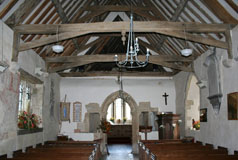

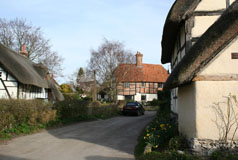
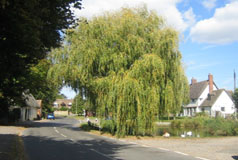
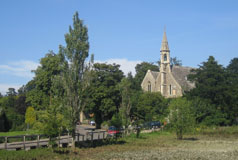
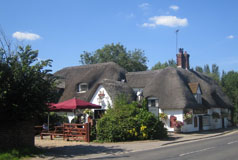
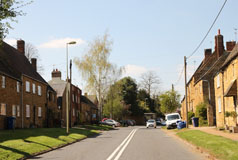
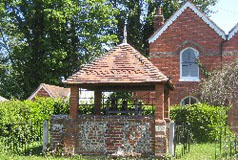
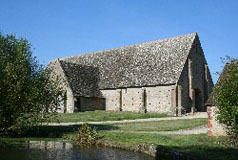
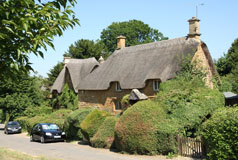
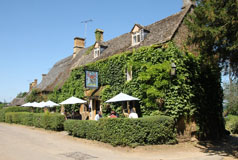
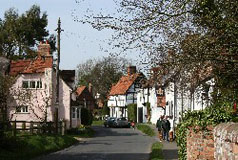
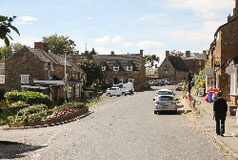
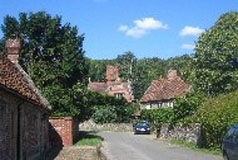
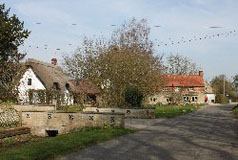
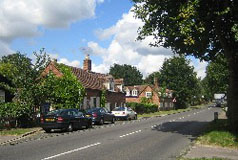
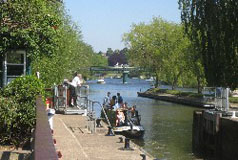
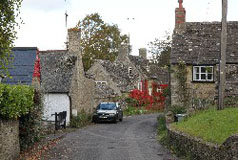
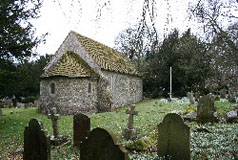
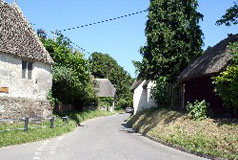
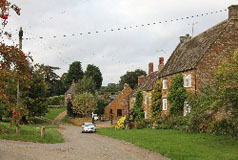
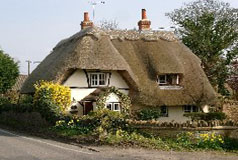
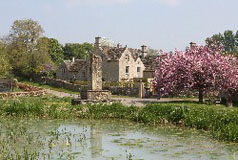
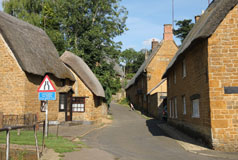
Holy Trinity Church, Finstock
Finstock Chapel-of-Ease was built in 1840-41, largely on the initiative of Thomas Silver, vicar of Charlbury, and was served by a curate for some twenty years. The original building consisted of the present nave only. Parish registers began in 1860 when Finstock with Fawler became a separate ecclesiastical parish. The present choir and sanctuary were added in 1906, during the time of Vicar Cary-Elwes. The intention was to rebuild the entire church to match the new chancel, hence the protruding stones (for interlocking) to be seen behind the pulpit and on the opposite side. The pulpit was given in memory of Frances, Dowager Lady Churchill who died in 1866. The screen is by Franklin's of Deddington, who also produced work for Oxford colleges, other local churches and private houses. The east window depicting the Crucifixion, with St. Mary and St. John was designed by Kempe, the well known nineteenth century stained glass artist. The reredos includes a statue of St. Hugh, Bishop of Lincoln, to which the Oxford diocese belonged until the 19th century. A window in the S.W. corner commemorates the Golden Jubilee of Queen Victoria. There is a stained glass window and mural tablet in memory of Sir Arthur du Cros, inventor of the pneumatic tyre. (There was a Finstock tyre produced by Dunlop at one time). The du Cros family lived in Finstock Manor and their family mausoleum is in the churchyard. The poet T.S. Eliot was received into the Church of England in the church on June 29th 1927. A commemorative plaque was installed on June 23rd 1974, and above it a collage picture by Frances Kaye. On June 3rd 1984, a wall plaque and an epistle lectern were dedicated in memory of the writer Barbara Pym, who lived in Finstock from 1972 to 1980. Historical information about Holy Trinity Church is provided by Finstock.org.uk. Holy Trinity Church is a Grade II listed building. For more information about the listing see CHURCH OF THE HOLY TRINITY, Finstock - 1367876 | Historic England. |

